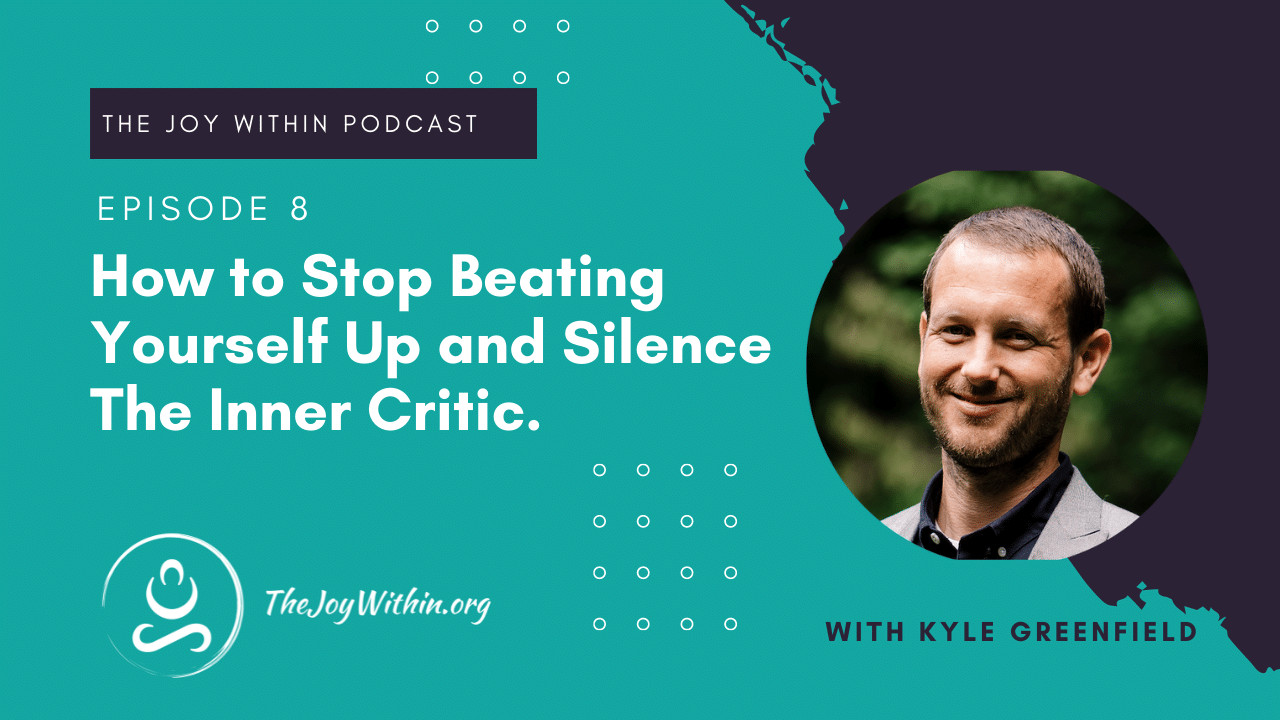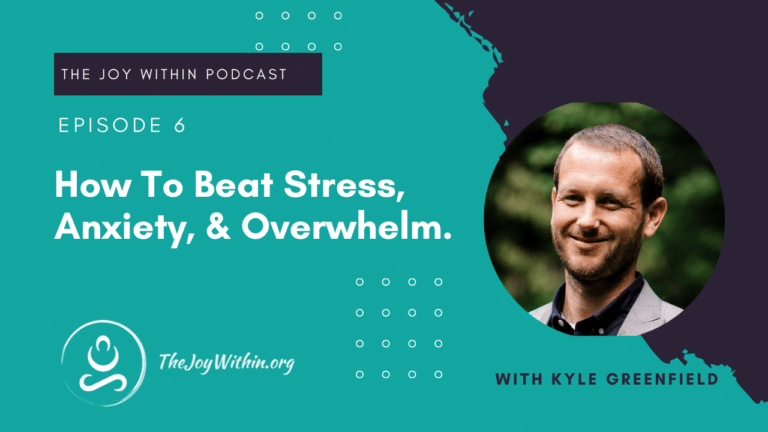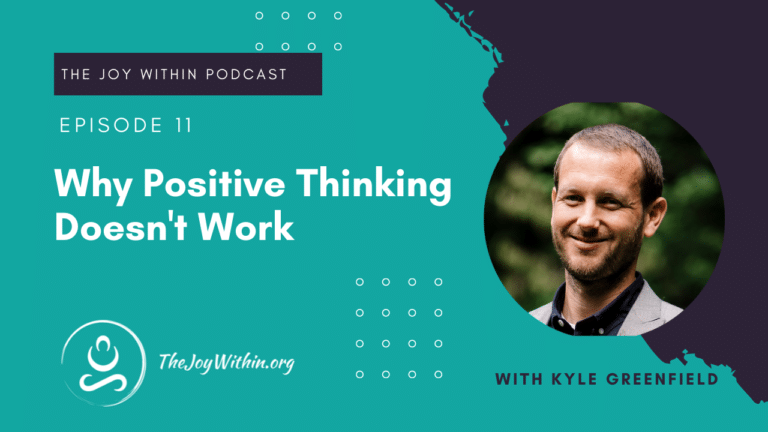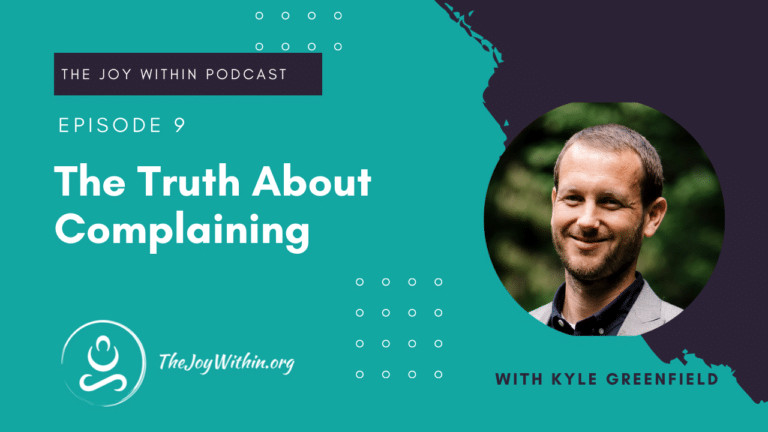Hello and welcome back to the joy within’s podcast. If you’ve been following along with the last few episodes, you know we’re talking about the 5 ways negative thoughts are secretly controlling your life and what you can do to stop them.
So far we’ve talked about stress and anxiety related thoughts, and last time we looked at doubt, so check out those episodes if you missed them. Today we’re diving into the 3rd category of subtle negativity, and that’s internal criticism.
By internal criticism, I mean negative self-talk. It’s that little voice in your head that beats you up whenever you do anything that’s less than perfect. It says things like: You always do this, or you never do that, or why can’t you just get this right? or you should have done something different.
Often those thoughts come back over and over again, as a constant, inner narrative that just wears you down. It’s kinda like being nagged to death and you just want to stop and shout enough already! When that’s the case, these thoughts can be really easy to spot.
But, just like the other categories we’ve talked about, this negative self-talk can also be really subtle, and sometimes we subconsciously convince ourselves that we need it. For example, if you set high standards for yourself, it’s easy to convince yourself that this nagging inner voice is helping you to stretch and improve and reach for your goals.
But, often, just beneath the surface of your awareness, those little negative stories are actually chipping away at your confidence and they’re actually impeding on your ability to improve and make progress. They can force you into limiting beliefs that cap your ability to achieve and succeed at the things that matter most to you. And that can happen in any area of your life. And if you’re not careful, it can become a constant stream of “I can’t” or “I’m not good enough” and that will really wear you down.
So, you have to be on the lookout for negative self-talk, and I think the line you have to find is when that inner voice is making good, productive suggestions for improvement vs when it’s just beating you up. We all want to improve. We all want to learn and get better at the things that are important to us. So how do we tell the difference? Well, like with stress and doubt, the first step is awareness. Step back, find center, and start to become more aware of the self-talk that is running through your mind.
And, you want to pay particular attention to the quality of that self-talk. Is it helpful? Is it kind? Is it critical? Mean? And if you’re not sure, just ask yourself: is this the type of criticism you would give to a 5 year old? If not, then it probably has at least some negative bias.
If anything, I think it helps to become oversensitive for a while to you’re learning to spot this negativity more easily. And that’s because we’re often so used to it, we tune it out, we don’t even notice it…even as it works on our subconscious beliefs about ourselves, and that’s why we start to feel powerless.
This is one of the things I say a lot to my Happiness University students and coaching clients. They all want to improve the way they think. They want to feel happier and less burdened by old mental habits, so they start meditating. They start following our system, and they start to see results, hey start to feel better, often really really quickly. But, then the negative self-talk creeps in, so what happens is they’ve raised their energy really quickly, and are now starting to operate from a higher level, but they still have some of the old negative thoughts floating around.
Except now, because they’ve raised their energy, they’re more aware of that old negativity, and every time it crops up, they beat themselves up. They think “ugh. Why did I have that thought?” or “I should be past this by now. I must be doign something wrong.” and they get mad at themselves for it, when the fact is: their awareness of that negativity is evidence of their progress, and if you could just shift the mental framework that says “negative thoughts are always bad” you could instead use these thoughts as a lever that will help you progress even further. It’s just about shifting that story, often slightly, so you’re not beating yourself up at every turn.
So as you’re paying attention to your inner critic, notice the quality of that criticism. How does it make you feel? Is it helpful, or unhelpful? Once you do that, you can start to shift that energy, so you can move gradually but reliably, sustainably, into better and better states of mind. It is a process. It takes practice. But it absolutely works. It’s a skill, a habit. And it’s absolutely essential if you want to truly master your mood. Fundamentally, it’s a skill I believe anyone can learn. You just have to have the right tools, the right strategies, and the right mental model that will make it work for you.




